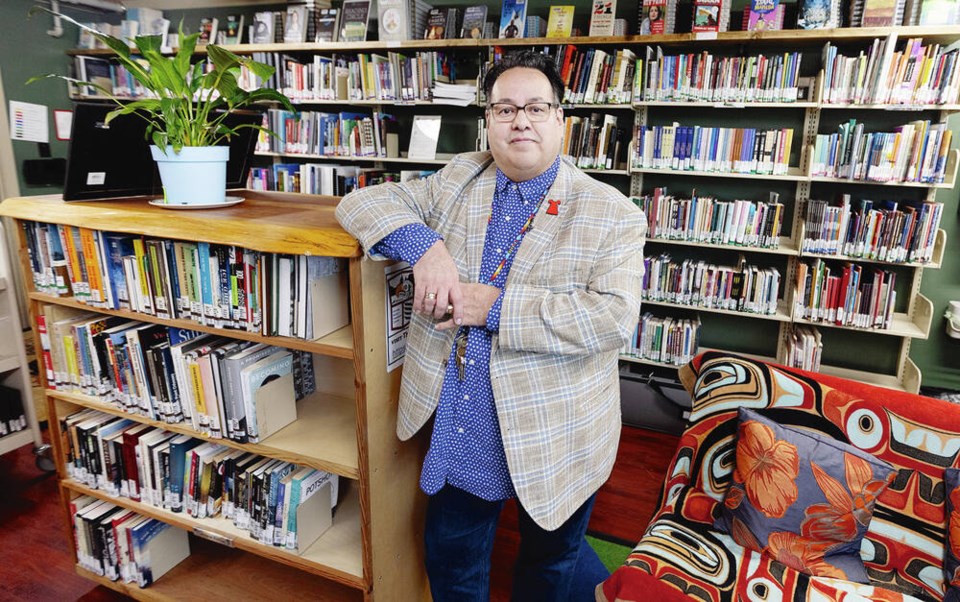Staff at the Victoria Native Friendship Centre has been left scrambling after losing the main source of funding for a program that teaches multiple Indigenous languages, says the centre’s executive director.
The centre’s Urban Indigenous Language Hub offers classes in seven different languages, including Nuučaan̓uɫ, two dialects of Nihiyaw, Nedut’en Carrier, Dene, Dakota, and Anishinaabe — and has had over 2,000 participants since 2018, said executive director Ron Rice.
Without learning opportunities, “the path to extinction is real” for Indigenous languages, he said.
Rice said the impetus for the program is to provide language training to meet the varied needs of Indigenous people living in an urban setting.
“The reality is the majority of the population is living off-reserve, whether they’ve moved away for school or for work or for love or for housing, whatever it is, they’re living away from their territory,” Rice said. “So this model makes some sense.”
Funding has come from several different sources, Rice said, including the First People’s Cultural Council and the National Association of Friendship Centres.
But the majority of the program’s financial support has come from the federal Department of Canadian Heritage, which informed the Victoria centre this month that further funding had not been approved.
The program received $266,500 from the department in 2023.
“They were very clear that this wasn’t anything to do with us or our performance, but it had to do with new priorities being set,” Rice said. “They did say they’re willing to be a strong reference to any provincial funding [the centre] might be able to tap into.”
The Department of Canadian Heritage did not respond to questions about the cut in funding by deadline Monday.
Rice said about 87 per cent of the province’s Indigenous population lives off-reserve, and one-third of Canada’s existing Indigenous languages are found in B.C.
“The loss of this contract is in stark contrast to recent government statements and promises around reconciliation,” he said.
Despite being in the majority “urban Indigenous people have not been included or considered in language revitalization,” he said.
“The disparity between on-reserve funding and the funding that serves the majority of our Indigenous community here is immense.”
The program can likely keep going for three or four months thanks to the dedication of the instructors, Rice said, “but we’ll need to find a solution before we get into the summer.”
Minister of Indigenous Relations and Reconciliation Murray Rankin said the province has committed over $93 million to B.C. First Nations since 2018 to support culture, traditional knowledge and language.
“Communities are developing language-revitalization plans,” he said in a statement. “They have trained staff, and they are implementing programs that are making a difference by documenting the languages and creating new speakers.”
The 2022 Report on the Status of B.C. First Nations Languages put the number of First Nations language learners in the province at 17,000, an increase of almost 20 per cent in four years, Rankin said.
“Thanks to the efforts of Indigenous language teachers and elders, these community-led efforts are making a real difference in peoples’ lives.”
Rankin said he has heard about First Nations’ concerns with future funding.
“In late November, I reached out to the federal Minister of Canadian Heritage Pascale St.-Onge and stressed B.C.’s commitment to working on long-term, predictable funding in partnership with Canada,” he said. “Clearly there is more work to be done as Crown governments to support First Nations language revitalization.”
Donations to the centre can be made at https://vnfc.ca/donate/.



